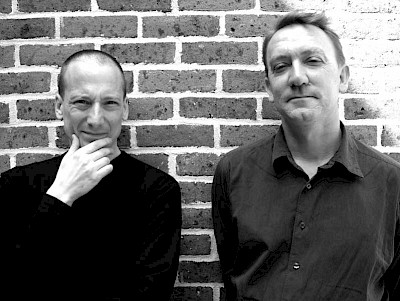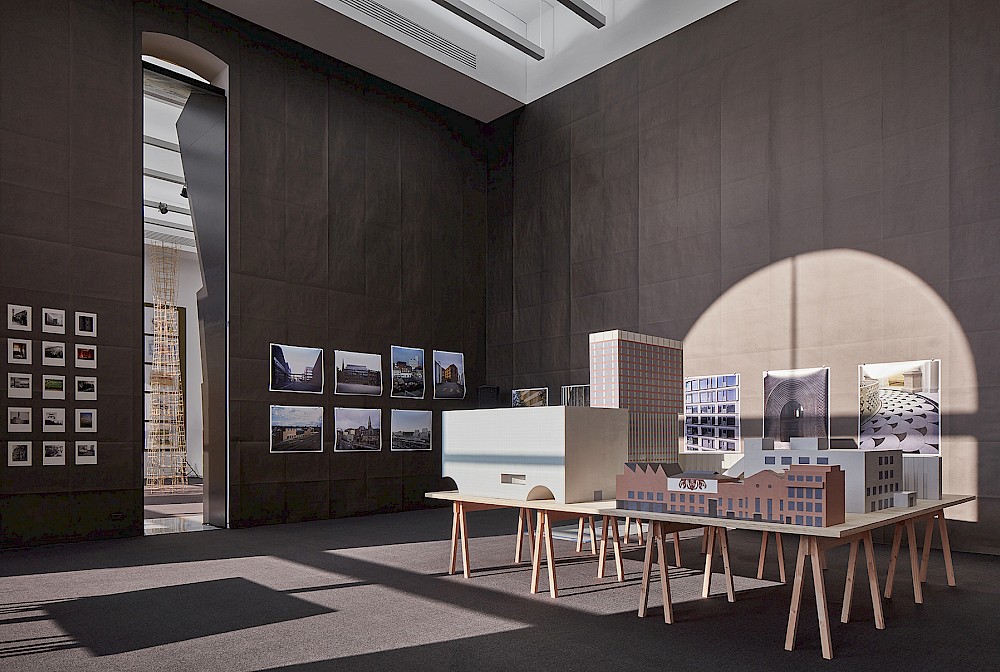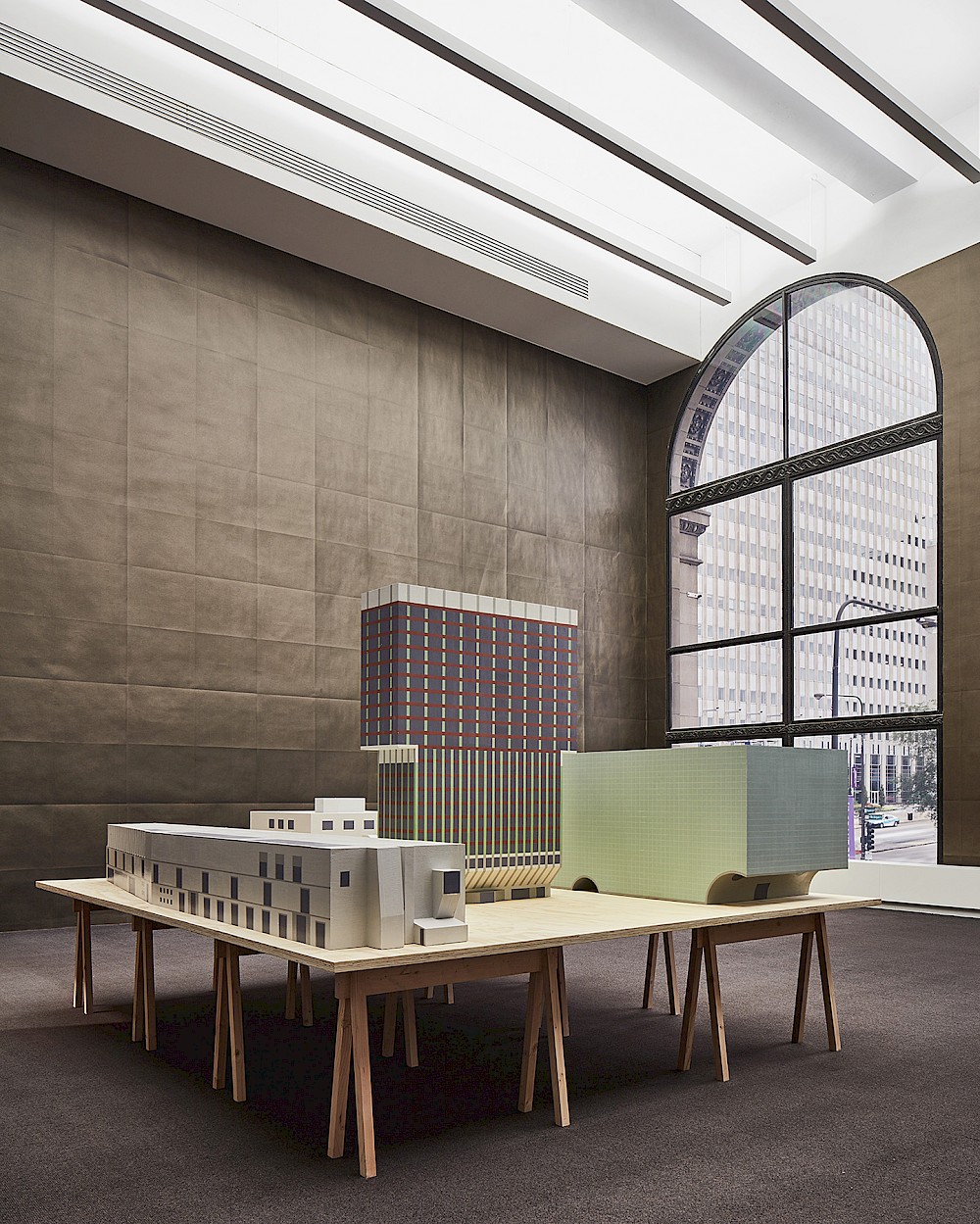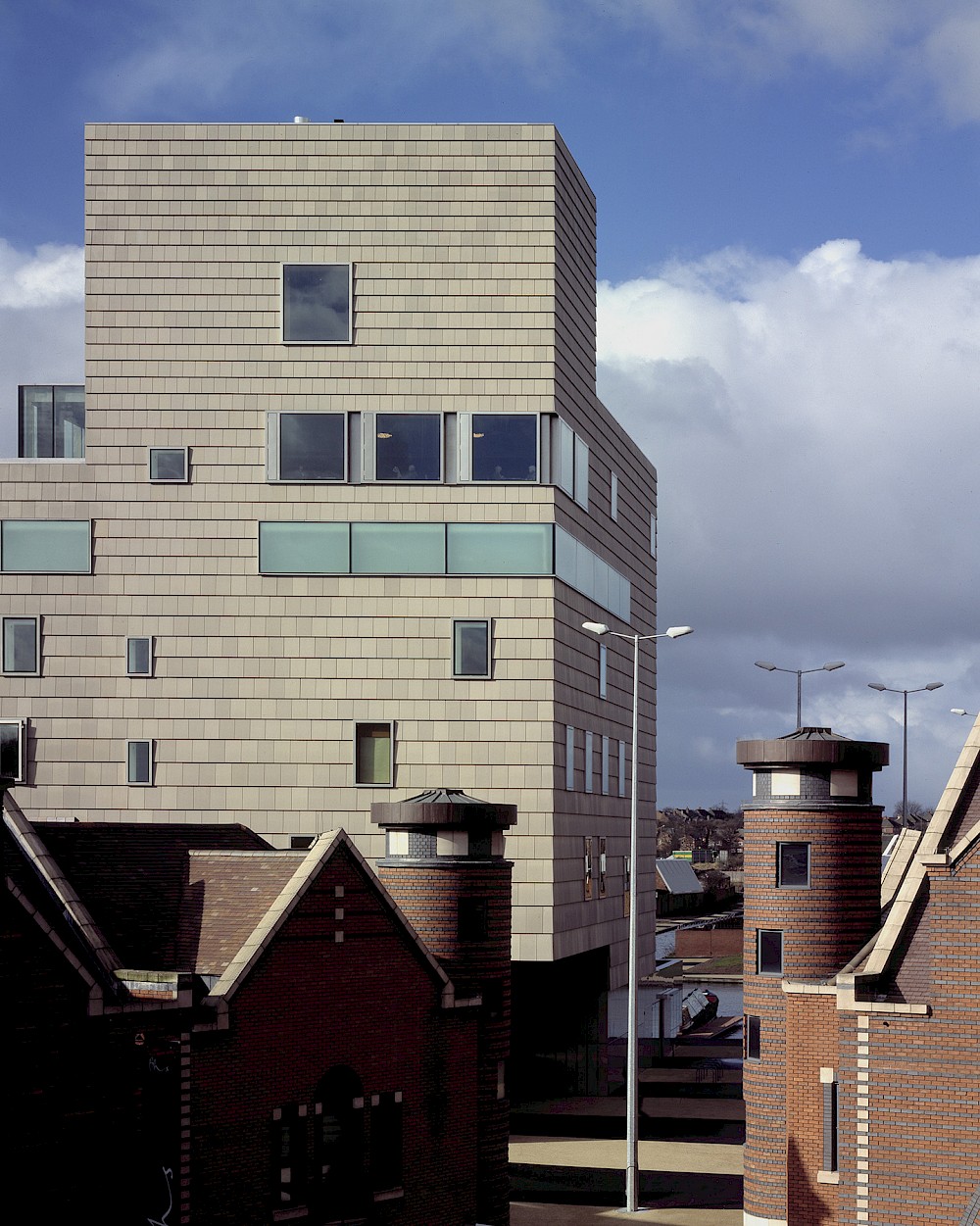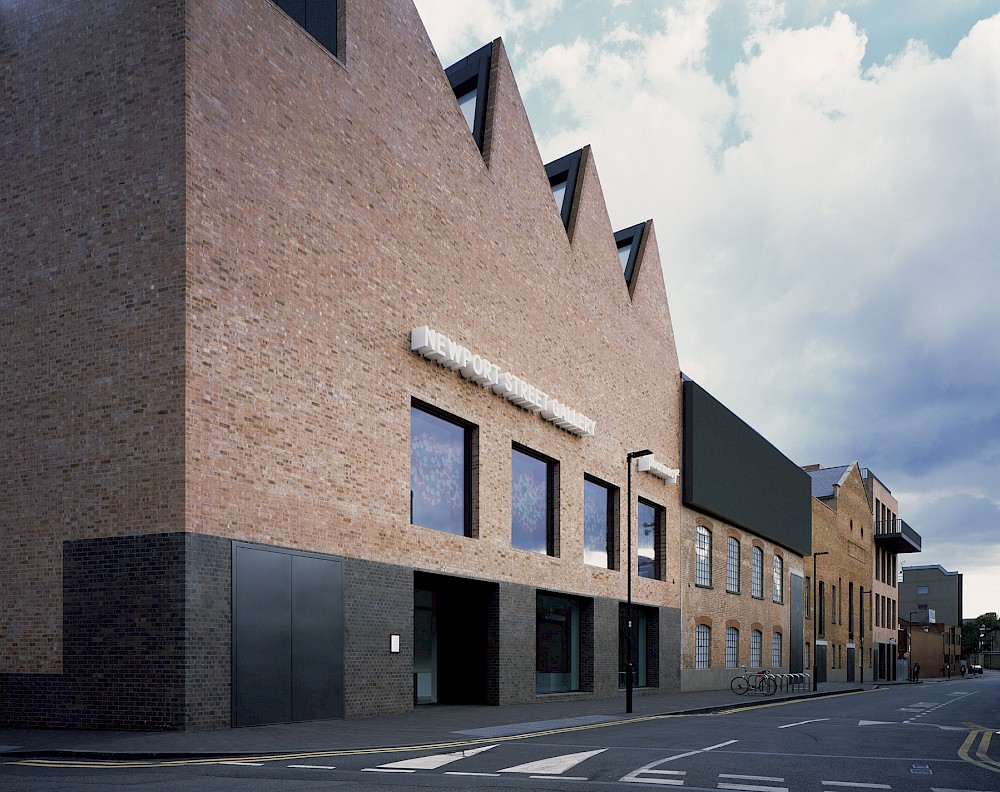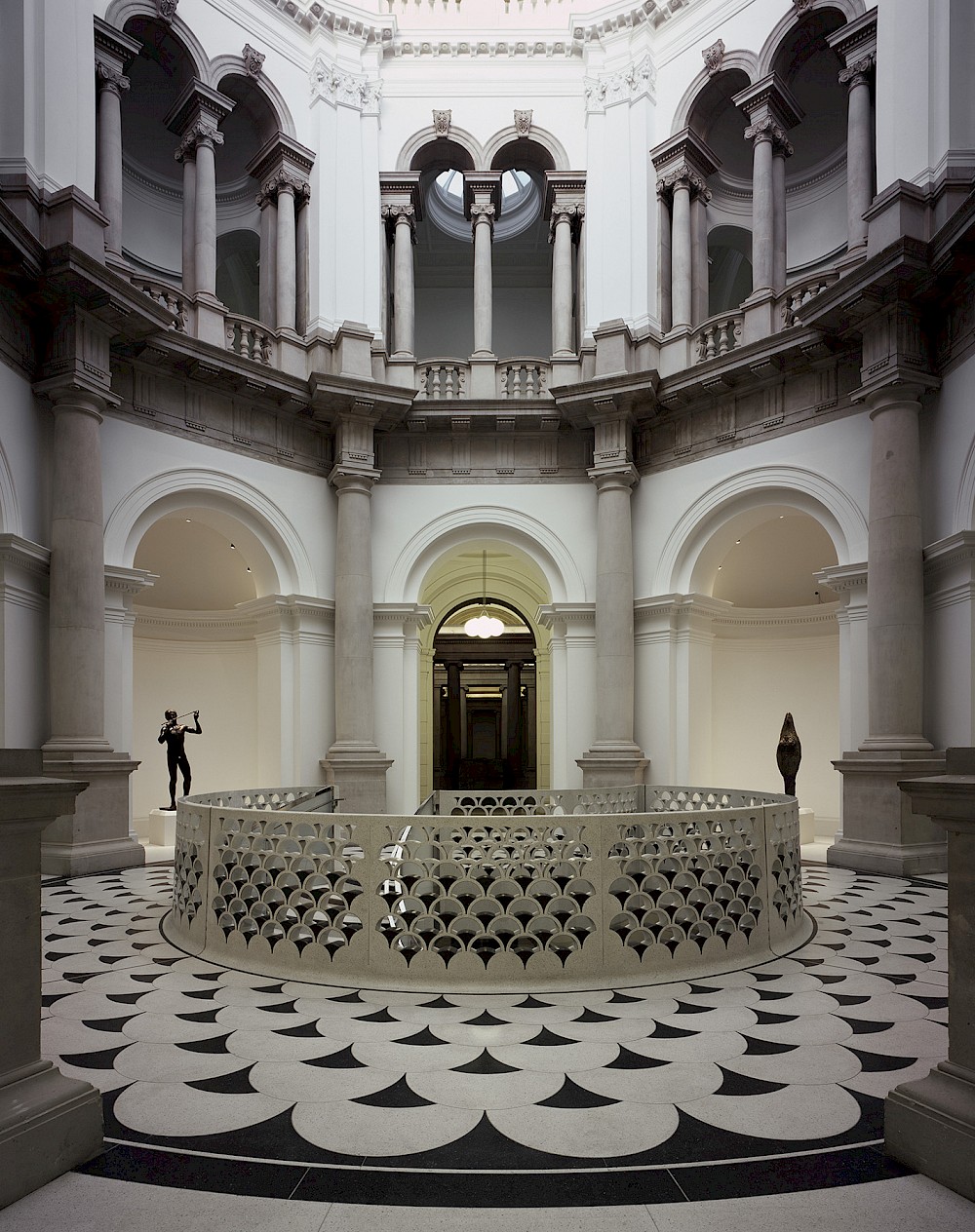BIENNIAL PROJECT
Constructions and References
Caruso St John present a room that highlights the circulation of images, references, and histories between their own office and their collaborators artist Thomas Demand and Hélène Binet. In the center of the room is two tableaus, on the first sits a constellation of figural volumes, in a city-like scene. There are five large models by the office; a completed building, one whose design is currently being developed, and three competition designs. Stripped of their contexts, removed from place and politics, they are close to autonomous architectural thought. On the other table we see models made for their collaborative projects with Demand. The four walls of the room are covered in a deep lining, Fold, a wallpaper specially made by the artist. A selection of reference images is mounted directly onto the wallpaper. These show places, art practices and architectures from the wide history of western culture. Details and forms from these references appear, sometimes with a shocking directness, in Caruso St John’s completed buildings which are photographed by Hélène Binet. Demand’s work occupies two walls; Presidency V commissioned by The New York Times magazine captured the oval office on the event of the Obama election in 2008, and Folders depicts the 2017 press conference that staged piles of blank manila folders as evidence of business plans, a moment that rendered explicit the modeling and imaging at play in the current American administration.
BIO
Since its foundation in 1990, Caruso St John has been pursuing an architecture that is rooted in place. The practice resists the thin-skinned abstraction that characterises much global architecture in favour of buildings that are perceived slowly over time and that have an emotional content. Its work is enriched by an on-going dialogue with the European city and with history — that of architecture, art, and culture more widely.
The practice rose to prominence with the acclaimed New Art Gallery Walsall, completed in 2000. Many cultural sector commissions have followed, including the Millbank Project for Tate Britain, a suite of commercial galleries for Gagosian, and Damien Hirst’s Newport Street Gallery in London for which the practice was awarded the 2016 RIBA Stirling Prize. The practice has offices in London and Zurich, and now works on a wide range of projects, both public and commercial.
Thomas Demand studied with the sculptor Fritz Schwegler, who encouraged him to explore the expressive possibilities of architectural models at the Kunstakademie Düsseldorf, where Bernd and Hilla Becher had recently taught photographers such as Andreas Gursky, Thomas Struth, and Candida Höfer. Like those artists, Demand makes mural-scale photographs, but instead of finding his subject matter in landscapes, buildings, and crowds, he uses paper and cardboard to reconstruct scenes he finds in images taken from various media sources. Once he has photographed his re-created environments—always devoid of figures but often displaying evidence of recent human activity—Demand destroys his models, further complicating the relationship between reproduction and original that his photography investigates.
Demand (born 1964) has been the subject of one-person exhibitions at The Museum of Modern Art, New York, and the Neue Nationalgalerie, Berlin, and he has represented Germany at the Venice Biennale and the Bienal de São Paulo. Demand is currently based in Los Angeles.



